Tompkins Legislature “cancels” The Ithaca Journal; adopts ’26 budget
By Robert Lynch; November 21, 2025
Times change. But laws sometimes do not. And because of an archaic state statute likely kept in place only by lobbyists, the Tompkins County Legislature may need to eat its defiant words of Tuesday night and designate The Ithaca Journal as its official newspaper again for next year.
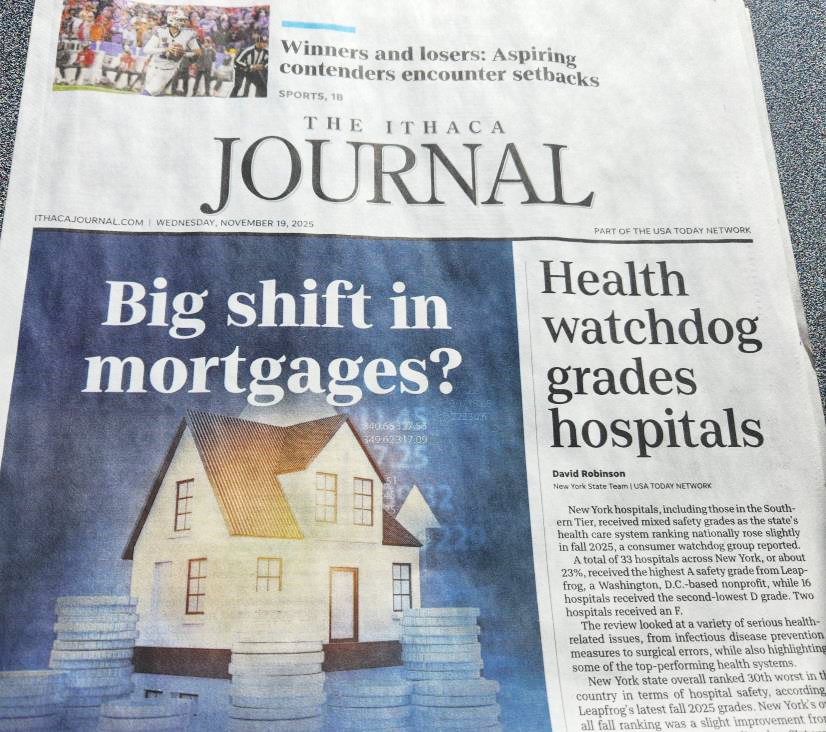
Any such renewal would come only grudgingly. And November 18, it didn’t come at all. With only two in support and 12 opposed, the County Legislature denied the Gannett daily its perennial perch, a privilege that carries with it the paper’s unchallenged right to take taxpayer money for publishing legal notices at whatever price it sets.
Additionally at the mid-November meeting, the Legislature revised and then adopted its 2026 County Budget. It also debated, but then delayed action on whether to request from New York State a one percent increase in its Hotel Occupancy Tax.
In voting down The Journal’s designation, Tompkins legislators followed through on a threat they’d made in years past, yet never quite found the courage to invoke. Choosing a newspaper normally becomes perfunctory housekeeping. But as they cast The Journal aside Tuesday night, lawmakers complained about the shrinking tabloid’s dwindling subscriber base, its inflated price, and impliedly its lack of local reporting.
“I think we all understand our right to protest,” Dryden’s Greg Mezey, leader of Tuesday’s anti-Journal rebellion, made clear. “I think sometimes as a lower level of government, we need to rise up and use our voice and our platform to encourage the state to move more swiftly.”
Where Mezey would like Albany to swiftly run is to amend its laws so as to permit local governments to publish legal notices in online news outlets like The Ithaca Voice, or in print-internet hybrids like Tompkins Weekly or The Ithaca Times.
Current New York rules forbid such freedom. Statutory definitions confine official newspapers to daily publications of general circulation published within the community. By that standard, only The Ithaca Journal qualifies here.
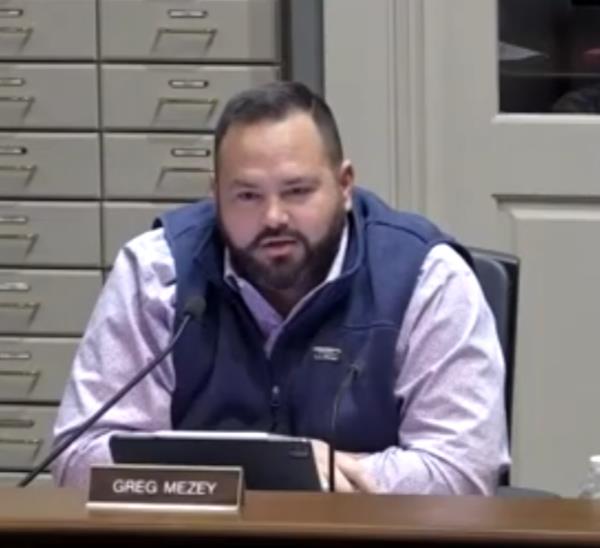
And in legislators’ eyes, that paper squanders its monopolistic privilege; taking advertising dollars and giving nothing in return. The Ithaca Journal may still have an Ithaca newsroom, but there’s seldom anyone there. The paper is now edited and printed in Johnson City, as are other Gannett papers serving the region. Journal reporters long ago stopped covering local politics, including meetings of the Tompkins County Legislature.
The legacy paper’s enviable status rankles Matt Butler, Editor-in-Chief of The Ithaca Voice. Butler took the mic during floor privileges at Tuesday’s meeting and urged lawmakers to consider his employer’s struggling digital platform as a better choice.
“Every organization in Tompkins County is doing more for local news than Gannett is through The Ithaca Journal,” Butler insisted. “I don’t think that it’s appropriate or smart to keep sending Gannett money just to pay rent on an empty office, or more likely honestly to just reallocate the money elsewhere where they deem the news more important for people to receive.”
Numbers tell the story. And they tell a story of The Ithaca Journal’s tumble from dominance. In 2017, the paper, then well on its retreat, had 8,809 subscribers, Mezey reported. That number has since shrunk to under 2,000, Legislature Chair Dan Klein said he’d learned.
Meanwhile, The Ithaca Voice, legislators were told, receives far more local hits. It gets 400,000 site visits per month, boasts more than 7,300 daily newsletter subscribers, and reportedly had 1.1 million active visits between January and September of this year.
The Ithaca Voice is free. But The Ithaca Journal’s getting pricy. Emaciated as it is, the daily paper costs $2.00 a copy. Teaser rates aside, print and online combination subscriptions can cost more than $90 per month, legislators were told. That can approach or surpass $1,000 in a year.

“If we want to talk about how we get our message and our publications and our notices out to the largest possible audience, this is the way,” Mezey asserted, praising a digital alternative. “An antiquated method of print news that doesn’t care about our community, is not the way to do that,” Mezey stated.
“The point of a public notice is actually to spread the word, to make the public aware of something,” Butler reminded lawmakers. Those needing to be informed are “not going to the publication for the public notices,” he reasoned. “They’re going there for the local news, and if that publication isn’t providing local news, there’s not going to be anyone there.”
But the law is an ass, they say. And despite best efforts locally, nobody seems capable of convincing state legislators to revise a section of the nit-picky “General Construction Law” that mandates governments post legal notices using the time-honored permanence of printer’s ink emplaced upon something perhaps perused today, yet tomorrow employed to wrap fish.
“This is just a leftover linguistic appendage,” Mezey said of the law’s decaying dictate. “It’s just hanging out there, and it should be cut out at the root, and we need to think differently how we notify our public, because this is not the way,” Mezey said of what the state insists always need be done.
After Mezey spoke those words, Mike Sigler clanged his drinking glass from across the room. It rang like a cowbell. The Lansing Republican, who sells billboard advertising for a living, has been railing against—and voting against—The Journal’s privileged designation year after year.
Dryden’s Mike Lane has also complained in the past about how low Ithaca’s once-great newspaper has sunk. Although he voted against official designation in committee, Lane joined Legislature Chair Klein to support the resolution in Tuesday’s final vote. Lane cautioned his was only a “reluctant yes.”
“I think we have to have a paper whether we like it or not, for now,” Lane counseled.
The Legislature’s Clerk, Katrina McCloy, concurred. She said the Secretary of State demands she notify his office of the designation by year’s end.
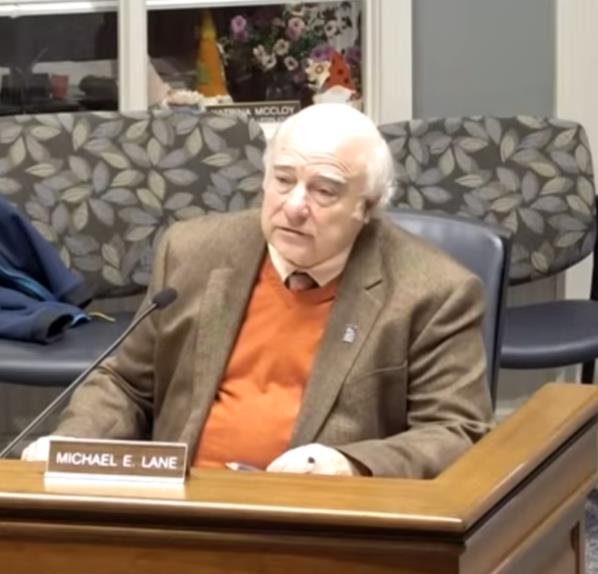
Two years ago when it tackled newspaper affirmation, the Tompkins County Legislature coupled its designation with unanimous endorsement of a then-proposed state resolution that would have broadened publication options to include certain online outlets under tightly-defined rules.
“These bills would permit this body to publish notices with other local newspapers with an online presence, increasing access to public information and supporting more local journalism,” the locally-passed legislative endorsement stated.
Yet even on the night the local legislature passed its 2023 recommendation, the sponsoring committee’s chair conceded defeat. According to the meeting’s minutes, Assemblymember Anna Kelles had advised the committee chair that “the resolution was determined to be not moving forward.” Later reporting would suggest that intense pressure from the print industry had spiked the reform initiative.
A January 2024 recommendation by the Enfield Town Board had urged similar reform. The online option “would likely save the Town considerable resources and provide the Town Clerk added flexibility in scheduling those notices’ publication,” the Enfield recommendation had stated.
In the nearly two years since then, Albany leaders have done nothing further to anyone’s knowledge.
So to remain legal, expect the Tompkins County Legislature at its next meeting in December to resurrect the issue, re-designate The Journal, but also accompany its action with an emphatic pleading Greg Mezey plans to write.
We need to “send a very strong letter to our state representatives and demand action on their part because it’s unacceptable,” Mezey stated in deriding the status quo.
Among other business, a final 2026 Tompkins County Budget emerged from the November 18 meeting. The Legislature adopted it unanimously, the first time that’s happened in years.
Most often, the final budget vote warrants only a footnote, since legislators have already performed most of their heavy lifting during a long string of budget meetings that begin shortly after Labor Day.
Yet last Tuesday’s final tinkering proved more extensive than usual. Adjustments consumed more than an hour of debate and a series of votes. And while the changes ticked up the tax levy a bit, they still contained that levy within the calculated 3.59 percent New York State-recommended tax cap.
“I’m not a big fan of this budget,” Lansing’s Mike Sigler conceded, because “the taxes go up,” he said. But “this to me is a bit of reckoning for us,” he added, “because assessments for a long time have floated us as a county, and it seems that this year that has not happened, and I don’t expect that will happen going forward.”
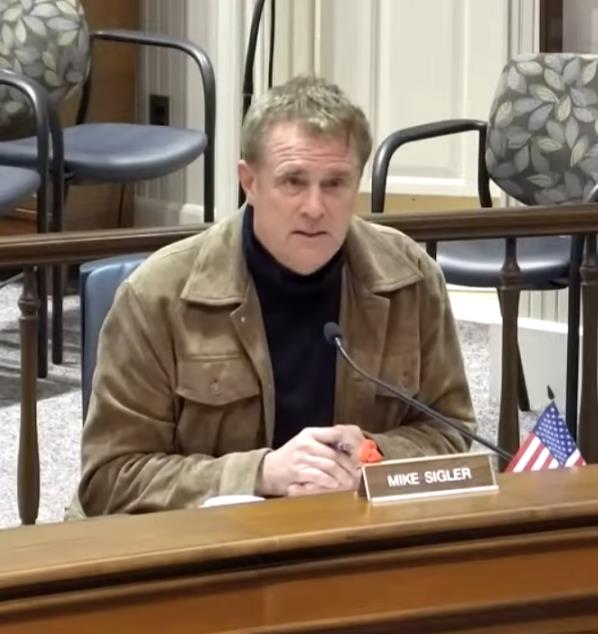
“Things cost more, and that’s the reality,” Greg Mezey acknowledged. In some years, Mezey votes against the budget. This year he supported it.
“I believe that this budget balances the most urgent needs of our residents and sustains the vital services whether it’s above or below the tax cap, and as it is I will support it,” Groton’s Lee Shurtleff stated.
In their final-meeting juggling of budget numbers, legislators cut to $280,000 an earlier-planned half-Million dollar subsidy to Tompkins Consolidated Area Transit (TCAT). The reduction followed Cornell University’s late decision to fund an equal $280,000 TCAT subsidy compared to the meager $31,000 Cornell had first proposed.
But for Tompkins County, those budget savings became short-lived. In a series of votes, legislators allocated $191,550 to support a trio of programs. One of the appropriations directs $58,590 into OAR (Opportunities, Alternatives, and Resources), an agency assisting the formerly incarcerated. OAR beneficiaries’ passionate appeals dominated a September 30 County Budget Forum. Another last-minute appropriation will support a program to provide mammograms to low income Ithaca residents.
And in a final move that pushed up the levy to match the tax cap, lawmakers funneled another $150,000 into their contingent fund. The levy increase as the meeting started was 3.37 percent. By meeting’s end, the levy was up nearly 3.6 percent.
Left for another day—if it ever survives that long—is a controversial initiative to raise Tompkins County’s Hotel Room Occupancy Tax from five to six percent. The idea would require state legislative approval next year. The hotel tax request had drawn divided votes in two local legislative committees, having failed in one of them. And after heated debate Tuesday, the full Legislature sent the idea back to committee where it could very likely die.
“Our visitor data is showing that our visitation is down,” Peggy Coleman, President of the Tompkins County Chamber of Commerce, cautioned legislators at the meeting’s start. International visitation year-to-year is down by 52 percent. The Canadian portion of that metric is down a full 72 percent.
“From a leisure travel perspective, this is really not a good time to increase taxes to create more expense to folks as they’re trying to manage the expenses of everything else in their lives,” Coleman warned.
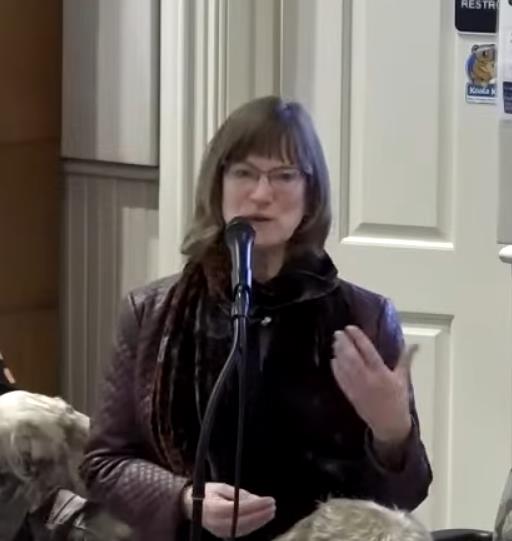
But some on the Legislature, including Lansing’s Mike Sigler, Dryden’s Mike Lane, and Newfield-Enfield’s Randy Brown, would target the projected $800,000 in newfound revenue from the one percent increase to shore up revenues at the Ithaca-Tompkins Airport. The local airport struggled—and failed—in this most recent budget cycle to win increased taxpayer subsidies that might hold enplanement fees down and entice new airlines to establish routes here.
“We have very few opportunities to increase revenues,” Brown said. “And I think this is something that would help regular taxpayers here.”
“This is our version of Saturday parking,” Greg Mezey countered, the Dryden lawmaker taking a snarky swipe at the City of Ithaca’s recent moves of desperation to fill a seven-figure budget gap. “Let’s throw something at the wall, and maybe we’ll figure it out later,” Mezey sarcastically told colleagues.
“I absolutely do not support this,” Mezey continued, blasting the hotel tax proposal. “We have absolutely no plan for this money; absolutely no plan for this money! Why would we levy a tax with no plan?” Mezey stridently asked.
True, for our county merely to request permission from the state would not necessarily compel the tax’s later imposition, lawmakers were advised. Yet some would prefer Tompkins County ditch the idea here and now.
“Regardless of what the reasons are for the decline in our tourism, there is a principle that when you’re in a hole, you don’t keep digging,” Deborah Dawson advised. “And to make it more expensive to come here when people aren’t coming here,” Dawson said, “is the equivalent to me of digging.”
The hotel room tax measure went back to committee by a nine-to-five vote. Whether it will ever exit that committee and return to the legislative floor, only time will tell.
###

